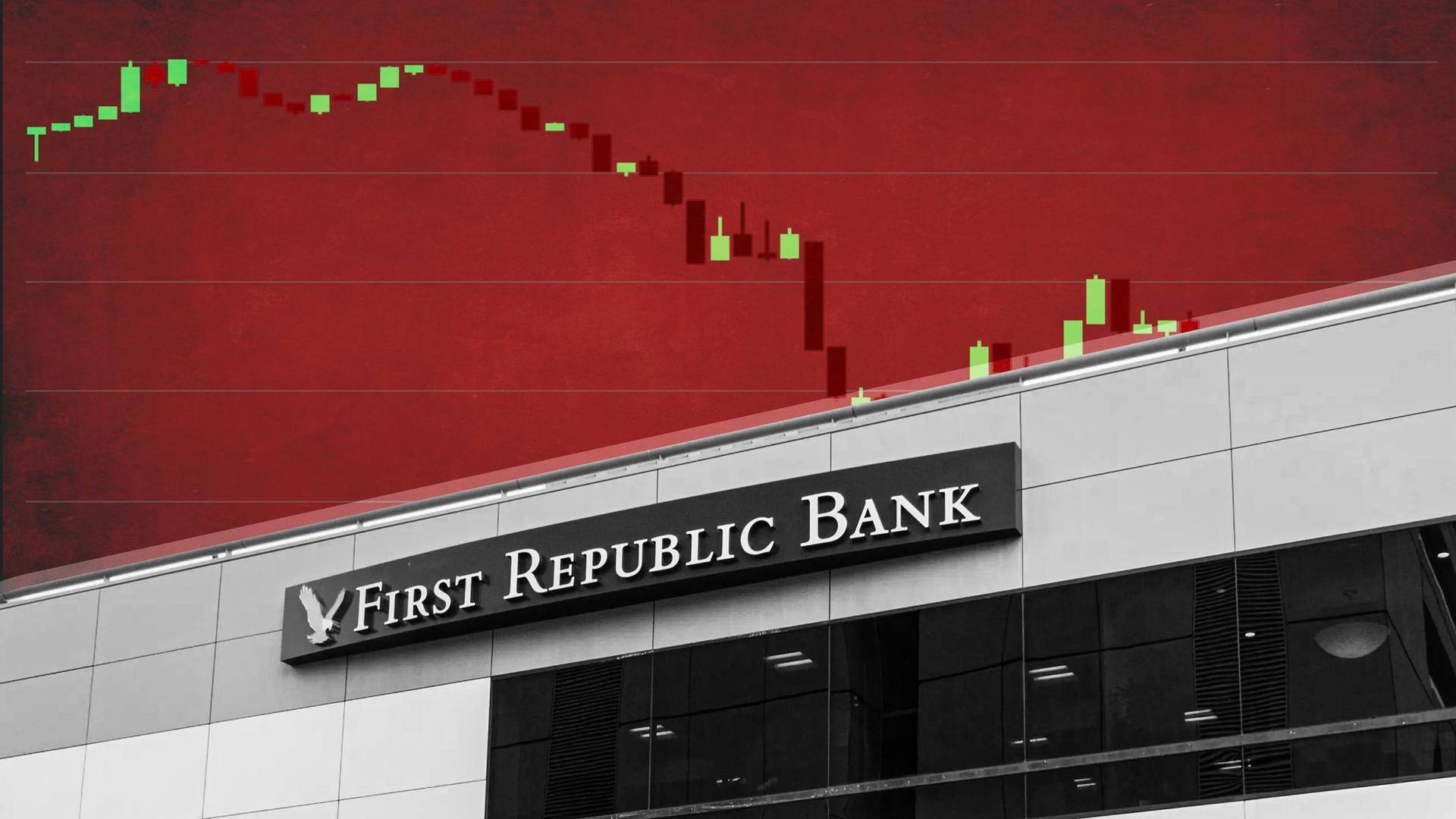
First Republic Bank falls record 65% during market opening
What's the story
Amid mounting liquidity fears, US-based First Republic Bank (FRC) crashed by a record 65% at the time of market opening. The stock was listed at $28.50, which is $53.26 down since yesterday's close.
The banking stocks in the US are seeing immense volatility with the collapse of two major private banks, namely Silicon Valley Bank (SVB) and Signature Bank.
Context
Why does this story matter?
What started as a problem for a single bank has now snowballed into a crisis for the entire US banking sector.
The SVB crisis has brought extreme volatility to the market and the situation is only going to get worse in the coming days.
The series of bank collapses is once again bringing the haunting memories from 2008 back to life.
Liquidity fears
The bank is failing to assuage market sentiment
FRC executives have been hard at work to reassure clients and investors about the safety of its business amid contagion features resulting from the collapse of two private banks within a week. However, the efforts have seemingly failed so far.
On Sunday, FRC said it "further enhanced and diversified its financial position" through additional liquidity from JPMorgan Chase.
Signs
Raymond James downgraded the bank's stock
FRC claimed to have over $70 billion in unused liquidity from agreements with the US Federal Reserve and JPMorgan Chase & Co. This would be used to fund its operations.
However, renowned investment banking firm Raymond James was not convinced.
Highlighting the possibility of deposit outflows by panicked large depositors, the firm downgraded FRC's stock from "strong buy" to "market perform."
Information
Other US-based lenders were also affected
San Francisco-based FRC is not the only one staring at uncertainty. Other US-based lenders like Western Alliance Bancorporation was down by a record 75%, KBW Bank fell by 13.56%, while PacWest Bancorp lost more than a third of its value.
Impact
How have the European markets been impacted?
SVB's collapse had a domino effect on the Old Continent as well.
In the UK, HSBC Holdings Plc has decided to purchase SVB's UK arm in order to avert a collapse. Meanwhile, in Germany, financial regulator BaFin has frozen SVB's branch.
Even the stocks of Swiss lender Credit Suisse Group AG went down by 15%. It is unclear whether the SVB factor was responsible.